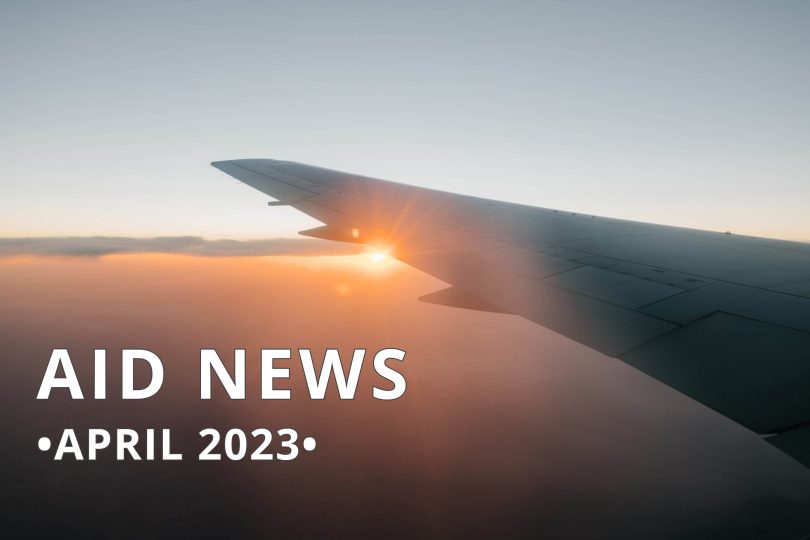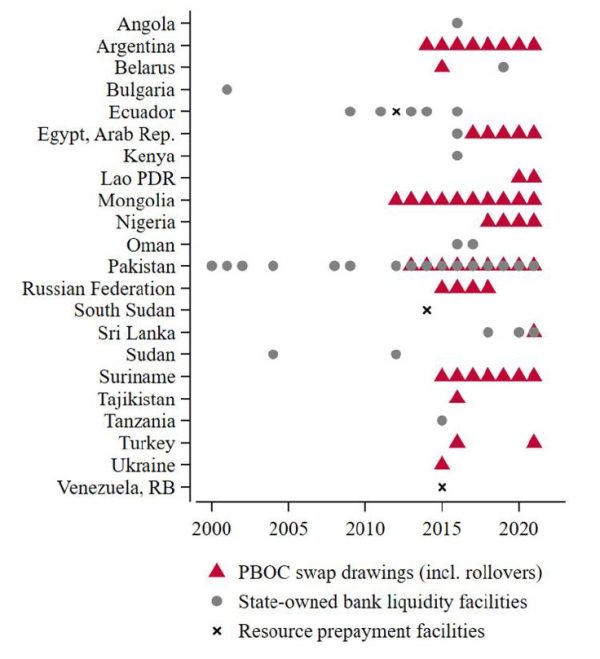Our monthly update of news and analysis on aid and international development, with a focus on Australian aid.
Australian aid
The OECD’s preliminary statistics on aid flows in 2022 show that Australia was the fourth least generous out of 30 official donors, ahead of only Korea, the Slovak Republic and Greece.
The Treasurer will hand down the 2023-24 federal budget on 9 May and Devpol will be holding its (virtual) aid budget breakfast on Wednesday 10 May. Register here.
Devpol will soon release a major piece of research on performance management in the Australian aid program. On a similar theme, the Development Intelligence Lab asks experts what the government’s “new and improved approach” to development effectiveness should look like.
The Minister for International Development and the Pacific, Pat Conroy, has announced an additional $8 million in aid for Vanuatu to assist ongoing response and recovery efforts in the wake of March’s twin cyclones, bringing Australia’s contribution to date to $12.5 million.
PLAN International Australia is urging the Australian government to join the US, the UK, Canada and other donors and prioritise the rights of children in humanitarian emergencies by committing $24 million over three years to the global Education Cannot Wait fund.
In response to questions on notice from Senate estimates, DFAT has indicated that the government is yet to make a decision on whether it will re-join the Green Climate Fund. In a recent piece for their blog, colleagues at the Lowy Institute make the case for Australia signing up again.
Korea, the current chair of the World Bank constituency that includes Australia and 13 other regional shareholders, used the IMF/World Bank Spring Meetings to call for the extension of special financing concessions for small island economies to Nauru and Palau, and for the Bank to increase its presence in the Pacific.
Regional/global aid
Shareholders from the region featured prominently at this year’s Spring Meetings. After much pressure, China reportedly cut a deal with Western creditor nations on debt restructuring that would involve the World Bank providing more concessional finance to countries facing debt crises. Japan, the host of this year’s G7, announced that it would “recycle” an additional 20% of its Special Drawing Rights (SDRs) to assist poor countries, bringing the total value of its SDR redistribution commitment to around US$15.9 billion. And Indonesia joined other developing country shareholders to express their concern that a greater focus on shared global threats like climate change could dilute the Bank’s support for client countries’ economic growth and national development efforts.
The Secretary General of the OECD, Mathias Cormann, used the Spring Meetings to call for “a fundamental rethink of the international development system – the mandates, drivers, capacity, and coherence of traditional and emerging actors – … to make it work better for those who need it most”.
Indonesia is seeking to renegotiate the interest rate on a Chinese loan to cover the US$1.2 billion cost overrun of the Jakarta-Bandung high-speed rail project, “a flagship programme of the Belt and Road Initiative in the nation”.
The World Bank has expressed concern regarding Fiji’s level of indebtedness, stating that a level of public debt at around 90% of GDP “threatens Fiji’s macro-fiscal stability, an essential foundation for sustainable economic and social development”.
The UK Foreign Secretary, James Cleverly, has visited Papua New Guinea and the Solomon Islands, promising assistance for clean energy, tackling climate change and protecting the region’s oceans.
USAID’s Assistant Administrator for Asia, Michael Schiffer, has reflected on his recent visit to the Pacific, highlighting ongoing work by the US and its allies and partners, including Australia, to jointly map their development engagement and identify complementarities. Asked about possible US-China cooperation on development in the region, Schiffer said that this is “very hard to imagine … given China’s approach and behaviour”.
The UN and other aid groups have suspended operations in Sudan following outbreaks of armed conflict between the military and paramilitary groups across the country, the deaths of three World Food Programme staff, and evacuations of foreign nationals by some countries.
The WFP has warned that the food crisis in Afghanistan is continuing to worsen and that an additional US$800 million in food aid is needed.
The head of the UK Independent Commission for Aid Impact, Dr Tamsyn Barton, has briefed parliamentarians on the Commission’s work and how it survived the 2020 DFID-FCO merger.
Books, reports, articles, podcasts etc.
UNICEF’s 2023 State of the World’s Children report reveals that during the pandemic 67 million children missed out entirely or partially on routine immunisations, with 48 million missing out entirely. This has set back childhood vaccination rates by 15 years.
The Kiel Institute has released a new study of China “as an international lender of last resort”, showing that China is increasingly providing debt restructuring to bilateral borrowers like Argentina and Pakistan.
Chinese cross-border bailouts by country
Source: China as an international lender of last resort (Kiel Institute for the World Economy, Working Paper 2244, p. 12).
A briefing paper by E3G on China’s climate finance finds that while China spent over US$1 billion a year on average on climate-related projects in the Global South between 2013 and 2017, “that is less than 2% of the hundreds of billions of dollars spent on infrastructure projects through the Belt and Road Initiative and other official programmes”.
Writing for his Chartbook series, Adam Tooze looks at whether the focus on the $US4 trillion in annual investments required globally to achieve the sustainable development goals and address climate change over the next decade heralds a new “big push” on aid.
Helen Clarke joins the “In pursuit of development” podcast to discuss the fragmented global development agenda, the role and relevance of the UN system, whether we are now better prepared for the next pandemic, and how politicians apply research while shaping everyday policies.
Michael Wesley launched his new book Helpem Fren: Australia and the Regional Assistance Mission to Solomon Islands at an Asia-Pacific Development, Diplomacy and Defence Dialogue forum.
Tobias Haque, a PhD candidate at the ANU Department of Pacific Affairs, looks at the impacts of major public finance reform initiatives on social order in three low-income, post-conflict settings (Solomon Islands over 2003 to 2014, Timor-Leste over 2000 to 2015, and Afghanistan over 2001 to 2021), and argues that “in each case, efforts to reform public finance institutions weakened the capacity of political elites to distribute public sector rents to powerful actors, contributing to disorder and conflict pressure”.
Disclosure
Material for this update has been collected by Devpol staff; editorial responsibility lies with Cameron Hill. Devpol’s work on Australian aid is supported by the Bill & Melinda Gates Foundation. The views represent those of Centre staff only.




Leave a Comment